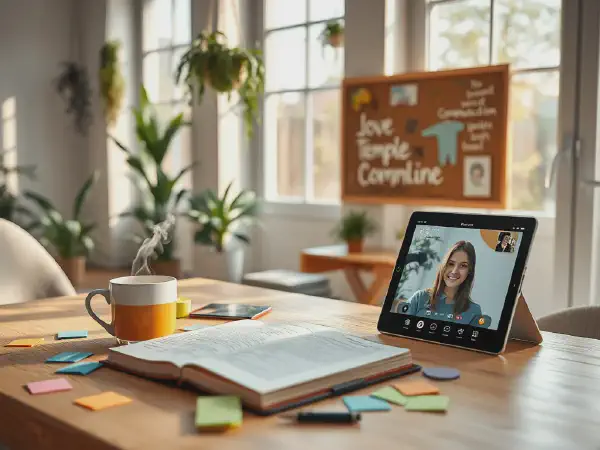Enhancing Effective Communication Skills for Success

Enhancing Effective Communication Skills
Enhancing Effective Communication Skills is essential in both personal and professional realms. It encompasses the ability to convey ideas clearly, listen attentively, and enhance understanding in interactions. Good communication skills foster stronger relationships, resolve conflicts, and promote collaboration. This article delves into various aspects of effective communication and provides practical insights to enhance these skills.
One of the core elements of Enhancing Effective Communication Skills is understanding its significance across different settings. Effective communication leads to improved relationships, whether in friendships, family dynamics, or work environments. By honing our ability to articulate thoughts and feelings, we not only express ourselves better but also create space for others to do the same, enriching mutual understanding and respect.
Moreover, Enhancing Effective Communication Skills is crucial for professional development. In the workplace, clear communication is vital for teamwork, project management, and leadership. It allows individuals to share ideas, give feedback, and align goals effectively. Those who communicate well are often more successful in their careers because they can navigate challenges and build networks with ease.
However, communication isn't always straightforward. Enhancing Effective Communication Skills involves recognizing and addressing potential barriers, such as language differences, cultural misunderstandings, or personal biases. By being aware of these hurdles, individuals can take proactive steps to improve their communication methods, ensuring that messages are received and understood accurately.
In conclusion, Enhancing Effective Communication Skills is an ongoing journey that requires practice and commitment. By investing time and effort into developing these skills, individuals can significantly improve their personal relationships, professional success, and overall interactions with others, leading to a more fulfilling life both personally and professionally.
Importance of Effective Communication
Effective communication is paramount for nurturing personal relationships. When individuals can openly express their thoughts and feelings, it deepens emotional connections and builds trust. For instance, partners who communicate effectively can resolve conflicts more harmoniously, thereby sustaining healthy relationships.
In a professional context, effective communication serves as the backbone for success. Clear and concise communication can lead to better collaboration among colleagues and stakeholders. Moreover, it plays a vital role in performance management, as well-communicated expectations lead to higher productivity and morale among team members.
Recognizing communication barriers is crucial for enhancing effective communication. Factors such as noise, emotional states, or differing cultural backgrounds can hinder understanding. By actively seeking to identify and overcome these barriers, individuals can significantly improve the quality of their interactions and relationships.
Mastering interpersonal relationships hinges on practicing Effective Communication, which fosters understanding and collaboration in diverse environments.
Key Communication Skills
Active listening is a critical component of effective communication. To improve active listening skills, individuals should focus on the speaker, reflect on what they are saying, and ask clarifying questions. This shows respect for the speaker and encourages a deeper level of understanding in conversations.
Non-verbal communication techniques, such as body language, facial expressions, and eye contact, significantly impact how messages are conveyed and received. Being aware of one’s non-verbal cues and matching them with verbal messages can enhance the clarity of communication and help avoid misunderstandings.
Verbal communication essentials include articulating thoughts clearly and using appropriate language for the audience. Utilizing a friendly tone, being concise, and avoiding jargon are fundamental practices to ensure effective verbal communication, making conversations more engaging and comprehensible.
Tools and Techniques for Improvement
Communication workshops and courses are valuable resources for enhancing communication skills. These programs often provide participants with hands-on practice in various communication scenarios, helping them gain confidence and learn strategies from experienced facilitators.
Online resources and apps designed for skill development, such as communication training programs and conflict resolution tools, can play an essential role in enhancing communication skills. Many of these resources offer flexibility and convenience, allowing individuals to practice at their own pace.
Practicing communication in everyday life is crucial for improvement. Engaging in conversations, seeking feedback, and applying learned strategies in real-world scenarios can provide meaningful opportunities for growth. Regular practice helps reinforce communication techniques and build confidence.
Challenges in Communication
Dealing with miscommunication requires patience and a willingness to clarify misunderstandings. When conflicts arise from miscommunication, it's vital to approach the situation with an open mind and a desire to understand the other person's perspective, fostering resolution and learning.
Cultural differences in communication can present challenges, as norms and expectations vary widely between cultures. Being culturally sensitive and adapting communication styles when interacting with individuals from different backgrounds can alleviate misunderstandings and promote healthier interactions.
Managing emotional responses during conversations is another challenge that can impact effective communication. Developing emotional intelligence, which includes recognizing and regulating one's emotions, can help individuals respond thoughtfully rather than react impulsively in emotionally charged situations.
Measuring Communication Effectiveness
Feedback mechanisms, such as surveys or direct conversations, can help individuals assess the effectiveness of their communication. Constructive feedback from peers or supervisors can provide insights into areas for improvement and reinforce good practices.
Self-assessment tools, including reflection journals or communication skill checklists, can assist individuals in recognizing their communication strengths and weaknesses. Regular self-assessment can motivate continuous improvement and highlight progress over time.
Peer reviews and assessments serve as another method to evaluate communication effectiveness. Engaging in team evaluations or role-playing scenarios can provide valuable perspectives on one’s communication style and its impact on others, making collaborative growth achievable.
